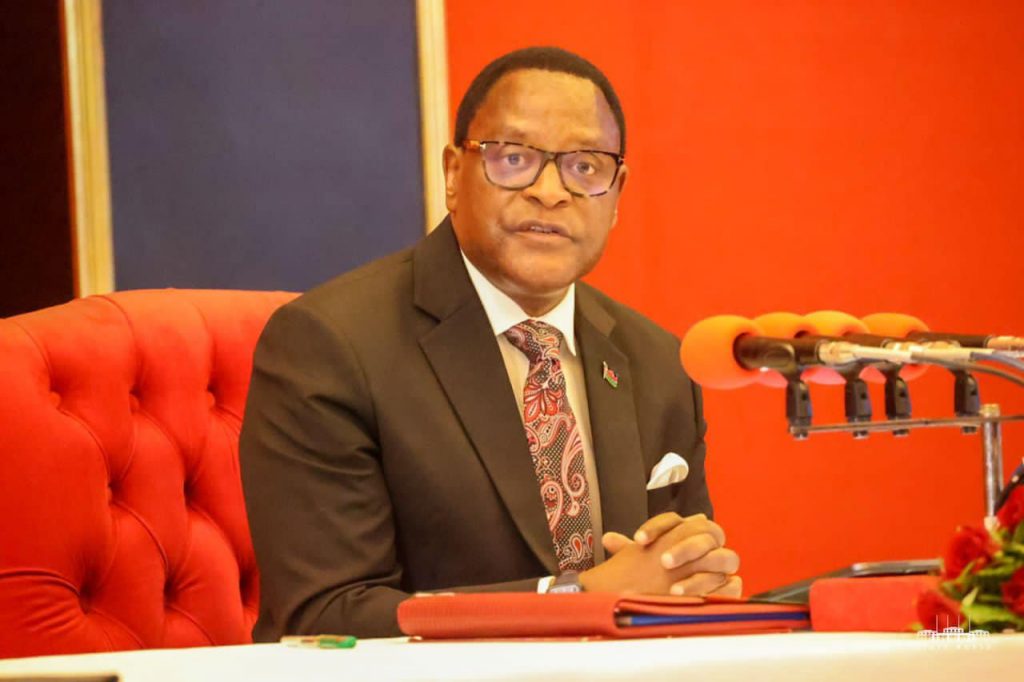Chakwera hits at rich nations
President Lazarus Chakwera has warned the world’s 46 poorest countries against complacency in their push to end poverty and graduate into middle-income nations actively involved in the global economy.
He was speaking during the opening of the Fifth United Nations Conference on Least Developed Countries (LDCs) in Doha, Qatar yesterday, a day after lamenting “lots of broken promises” from wealthy nations.
Malawi chairs the LDCs group created in 1971 to ramp up global partnership and solidarity to ensure no one is left behind in the push to end poverty.
Chakwera, who chairs the meeting, said “the pivotal point in world history” would fade into a lost opportunity unless the LDCs work together to protect momentum building up in Doha beyond the week-long talks.

The 46 LDCs, including 33 located in Africa, play home to over one in eight people and half of the world’s poor population, but are the worst devastated by poverty, debt stress, climate change, Covid-19 and conflicts.
But Chakwera warned: “In fact, the enemy we need to be most vigilant against is our own complacency.
“Just as the ancient era of world-conquering and war-mongering kingdoms and empires gave way to a modern era of world-policing, wealth-controlling, and earth-polluting superpowers, so must this era give way to a post-modern one in which international and multilateral cooperation between nations that treat each other as equals rules the day.”
He challenged the LDCs to set the pace and sustain the momentum in pursuit of sustainable graduation from poverty to integration in the world economy.
The world leaders’ meeting in the Qatari capital has been convened to drum up international partnerships and investment to make the one-year-old Doha Programme of Action work for the benefit of the LDCs group which Chakwera said “solely exists to ensure it doesn’t exist anymore”.
He said the LDCs cannot afford to see the Doha Programme of Action suffer the same disruptions that blunted its forerunner, the Istanbul Programme of Action.
The President implored them not to focus on “what other nations have that we do not have”.
“The greatest progress is always made by those who focus on what they themselves have and how to use it to build something better. In our case, we have the UN Sustainable Development Goals as a reminder of the better days that lie ahead of us. So let us not give up,” he stated.
The head of the UN Office of the High Representative for the LDCs, Landlocked Developing Countries and Small Island Developing States (UN-OHRLLS) is the main convener of the summit underway in Doha.
UN Secretary General Antonio Guterres condemned wealthy nations’ vicious and predatory lending rates, saying time has come for developed economies that control the global financial system and international development to do justice for LDCs.
He said wealthy nations should provide $500 billion annually to help others “trapped in vicious cycles” in addition to their pledge to channel 0.15 to 0.20 percent of their wealth to the low-income nations.
Guterres said the Covid-19 pandemic that led to the postponement of the once-in-a-decade conference from 2021 was yet another reminder of constant and unexpected global change made worse by skyrocketing food and energy prices due to Russia’s invasion of Ukraine.
“There is perhaps no more important issue around which we can and must unite than in transforming the words of the Doha Programme of Action into results. We don’t have a moment to lose,” he said.
“Today, 25 developing economies are spending over 20 percent of government revenues not on building schools, not on feeding people, not on expanding opportunities for women and girls, but solely on servicing debt. Some have seen debt-service payments skyrocket by 35 percent.”
Under the Doha action plan, the UN has unveiled a Sustainable Development Goals (SDG) Stimulus to gather the world around the need to provide at least $500 billion a year to LDCs. The strategy contains lofty targets, including the Sustainable Graduation Support Facility, an investment support centre and an online university to keep the global agenda to leave no one behind alive among over a billion of people in LDCs.
LDCs are home to an estimated 1.2 billion people, which roughly represents about 17 percent of the global population.
At least 15 LDCs, including Malawi’s neighbour, Zambia, appear on course to graduate into middle-income economies by the expiry of the Doha blueprint in 2031, a year after the deadline of the 2030 Global Agenda for SDGs to end poverty, hunger and inequalities.
The Doha action plan runs parallel to the SDGs, according to Fatima Rebab, the UN envoy for the LDCs. n





